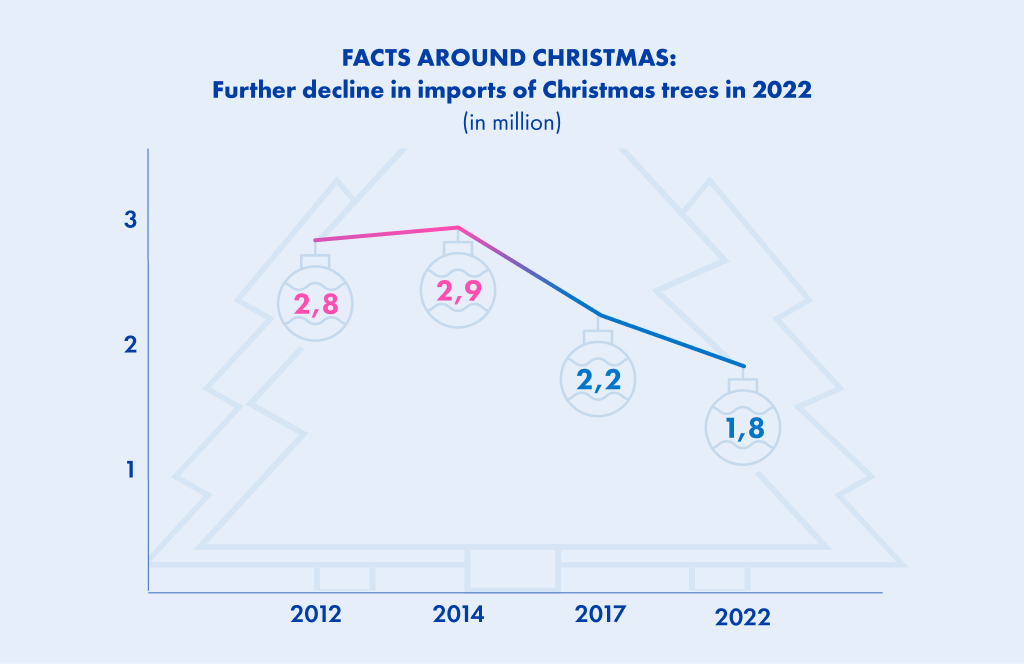Issue #150
Guten Morgen and Ho Ho… Oh! Snow is falling, airports are shutting, trains are striking, and Glühwein is flowing as we gear up for year-end bustling! Welcome to this week’s Krautshell edition – your weekly dose of not-to-be-missed political titbits from the EU and UK. A big shoutout to Atticus Partners for covering the UK front. In this week’s update, we cover how Hungary’s Orbán intends to veto decisions on Ukraine’s financial aid and accession talks, while the Bundestag struggles to pass a budget for nex year. Today marks two anniversaries : the 150th edition of Krathsell and the one year mark of the EU’s biggest corruption scandal in recent histrory: Qatargate. We also cover the UK Government’s ‘Rwanda Policy’, intended to send asylum seekers to Rwanda, facing obstacles after being declared unlawful by the Supreme Court. Last but not least, check out Anna’s Woom as she takes a closer look into the coalition’s budget crisis. Get into the festive spirit already, put on some Christmassy music, bring out the colorful jumpers and socks, and most importantly, add a little bit of schuss to your beverage. We wish you a relaxing weekend and a superb start to your week. Anna Szilvia WHAT TO WATCH THIS WEEK: Not-So-Jolly European Council as Vetoes Loom over Frosty Summit in Brussels Mariah Carey and Michael Bublé have long tuned in for the holiday season; Christmas markets and snowy landscapes (Munich had its heaviest snowfall since 1938!) are complemented with Glühwein and carols from Berlin to Brussels. But the holiday season would not be complete without family quarrels, and Hungary’s Viktor Orbán is poised to crash the upcoming Council meeting as Charles Michel’s personal Christmas Grinch. Council President Charles Michel planned to nail down decisions on new financial aid for Ukraine and the opening of accession talks with the war-torn country during the upcoming Council meeting. However, Viktor Orbán has already declared his intention to veto both agenda points. Orbán’s endgame could be the release of the frozen €13 billion EU funding, which was put on hold due to the rule of law concerns in Hungary. Coinciding with his declared intention to veto the Council’s agenda and a personal visit by Charles Michel to change his mind, €900 million were already unfrozen last week – and there could be more to come. Orbán’s continued efforts to cozy up with Kremlin leader Vladimir Putin add fuel to the flame. However, the Hungarian Prime Minister is not the only factor that might derail the Council’s agenda. Germany’s fiscal challenges and persisting budget deadlock could well complicate the planned agreement on revising the EU’s multiannual financial framework for 2021-2027. Although Germany supports both the opening of accession negotiations and providing new financial assistance to Ukraine, Berlin is hesitant to earmark funds for the collective asylum policy or the debt service of the COVID recovery fund. Germany’s cramped budget situation simply does not allow any leeway for exceptions or additional allocations. Watch out for next week’s festive but frosty EU family gathering in Brussels! INSIGHTS FROM PARLIAMENT: Bundestag Budget Battles – Merry Crisis! Speaking of the German budget crisis… its consequences for next year’s budget planning continue to wear out the governing coalition of Social Democrats, Greens, and Free Democrats. The SPD faction announced that the budget for 2024 won’t be passed this year because the parties could not agree on how to deal with the €17 billion deficit caused by last month’s infamous constitutional ling in Germany. The highest court declared the usage of significant amounts of funding in Scholz’s government’s budget unconstitutional, affecting planned expenditures for the government’s key projects to transform its industry, step up climate protection, and boost its economic modernization. For many moons, it seemed as though German MPs were waiting for Christmas to come early and deliver a budget consensus to their doorstep. With German Christmas miracles extremely unlikely at this stage in the parliamentary schedule, the Bundestag’s budget committee is poised to conclude its deliberations and push the final decision on 2024’s budget to January. Until then, provisional budget management would be in place, allowing only for the most essential expenses. Finance Minister Lindner (FDP) believes that a delayed budget decision would not cause major issues as long as political agreements support transition. Agreements, however, seem hard to come by these days, especially while the foundational consensus on which the three coalition partners have built their government program seems to swindle. Scholz will desperately need to turn a page with a fresh start in the new year. While there is literally no one in the German (democratic) landscape with a real interest in the current government’s (imminent) failing – you just have to look at the polls to see that only far right would benefit –, the situation is serious. THE BIG PICTURE: Qatargate Anniversary as European Election Campaigns kick off Today marks the one-year anniversary of the EU’s biggest corruption scandal in recent history. Many questions are left unanswered and several MEPs that were involved are yet to be held accountable. Foreign interference in Europe’s democratic processes is already a concern and Qatargate weakens the credibility of the EU’s institutions. Here is a reminder of what happened on December 9, 2022: Vice-President of the European Parliament Eva Kaili, her partner Francesco Giorgi, a parliamentary assistant to another MEP, and former MEP Pier Antonio Panzeri got arrested on preliminary charges of corruption and membership of a criminal organization. The accusation: exerting their power to influence the decision-making of the European Parliament on matters concerning Qatar, Morocco, and Mauritania. Today, Kaili has returned to the EP after a four-month stint in custody, Giorgi has pleaded guilty, and so has Panzeri. The official trial is still pending, and it remains uncertain whether it will materialize at all, particularly in Eva Kaili’s case, due to procedural notions of parliamentary immunity. While Belgian authorities face criticism about their handling of the case, also regarding another (Belgian) MEP who was involved but hardly investigated, the European Parliament makes its own efforts to restore the lost faith. Of course, the Parliament’s updated strategy to combat corruption adds to the bureaucracy, introducing mechanisms to detect misconduct more swiftly. This reform package was adopted in September with 505 MEPs, including Eva Kaili, in support of the reform. Whether these updated measures are enough to restore the faith of European voters ahead of the 2024 European elections remains to be seen. The Government has continued to push forward with its ‘Rwanda Policy’, which would send asylum seekers to Rwanda, despite the UK Supreme Court unanimously ruling the policy unlawful. New Home Secretary James Cleverly flew to Rwanda to personally sign the new asylum treaty which he claims deals with the Supreme Court’s ‘legal concerns’ regarding the previous policy. So far, the Rwanda Policy hasn’t given the Conservatives the bump in the polls they’re looking for, their position is no better for it. And in the process the Prime Minister has lost his immigration minister, who claimed the legislation doesn’t go far enough. Whether the Prime Minister even has the numbers to pass the policy is another question – the vote is due next week, and his MPs are split. The Conservatives’ grip on a majority in Parliament is becoming more fragile as the Government suffered its first defeat in the House of Commons since the General Election in 2019. The Rwanda Policy failing to pass would speak volumes as the new year bell chimes in a 2024 general election. Alongside government and policy matters rolls the UK’s COVID-19 inquiry. This week it was Boris Johnson’s turn to face the music and justify his actions and decisions during the pandemic. The former Prime Minister has been grilled on whether he took COVID-19 seriously enough in the initial weeks and months of the pandemic. While Mr. Johnson apologized for the ‘suffering’ during the pandemic, with the huge number of resources and attention devoted to sweeping ‘Partygate’ (where several unlawful parties took place across 10 Downing Street and other government buildings during the pandemic) under the rug, his apology has largely rung hollow. Christmas couldn’t come soon enough for a Prime Minister and Cabinet looking for a brief respite from the messiness of the last few weeks. But as election year looms there’s a lot to be done to shift the polling dial if Rishi Sunak wants to remain Prime Minister. Source: destatis.de Here are three appointments for next week that you should have on your radar: NEW YEAR, NEW BEGINNINGS It’s not the first crisis of the coalition, but the most severe one to date. Since the constitutional court’s ruling, the coalition partners have been trying to find a solution to reduce Germany’s budget for the years 2023 and 2024. For the 2023 budget, they took the easy and kind of the only option since the money was already spent: The Parliament was asked to declare a national emergency for early 2023 because of “the war in Ukraine and the resulting energy price shock,” which allowed the Coalition to circumvent the constitutional debt limit and take up new money. For 2024,e not so easy. Admittedly, things don’t look good overall, but not as bad as to justify another emergency declaration. Raising the debt limit theoretically is a solution, but the debt limit has been implemented in the constitution; thus, a 2/3 majority in Parliament would be needed to change that; thus, approval from the opposition would be necessary, and they already said: So, the remaining options are Reducing spending or raising taxes. And now it gets tricky. Raising taxes is, and always has been, a red line for the Liberals, tirelessly repeated by Party Chair and Minister of Finance Christian Lindner at every opportunity in the last few weeks. Impossible to step back from that. The Greens and Social Democrats, on the other hand, have a tough time reducing spending. Even more so, since the biggest items in the budget, with the most considerable potential for savings, are the social benefits. So far, there is no hint of any solution. The approval rates for the Greens and SPD are tanking. Minister of Economy and Greens’ Party Chair Robert Habeck even canceled his trip to COP28 to continue the negotiations, but so far to no avail. It looks like we won’t have an approved budget when going into the new year. It also looks like many politicians won’t have a Christmas vacation worth the name. And it looks like, for the first time, there is reason to think this coalition might not last until the regular end of the legislative period. Issue #150


FIRST, AN OUTLOOK FROM SZILVIA:
NOW, SOME SOLID INTEL:
AND WHAT’S UP IN GREAT BRITAIN?
TAKE A BREAK, GIVE YOUR EYES A REST:

LONG STORY SHORT:
OUTLOOK:
When?
What?
December 11th, 2023
Eastern Partnership Foreign Affairs Ministerial meeting
December 13th, 2023
EU-Western Balkans summit
December 14th & 15th, 2023
European Council
WHAT’S ON OUR MINDS:





